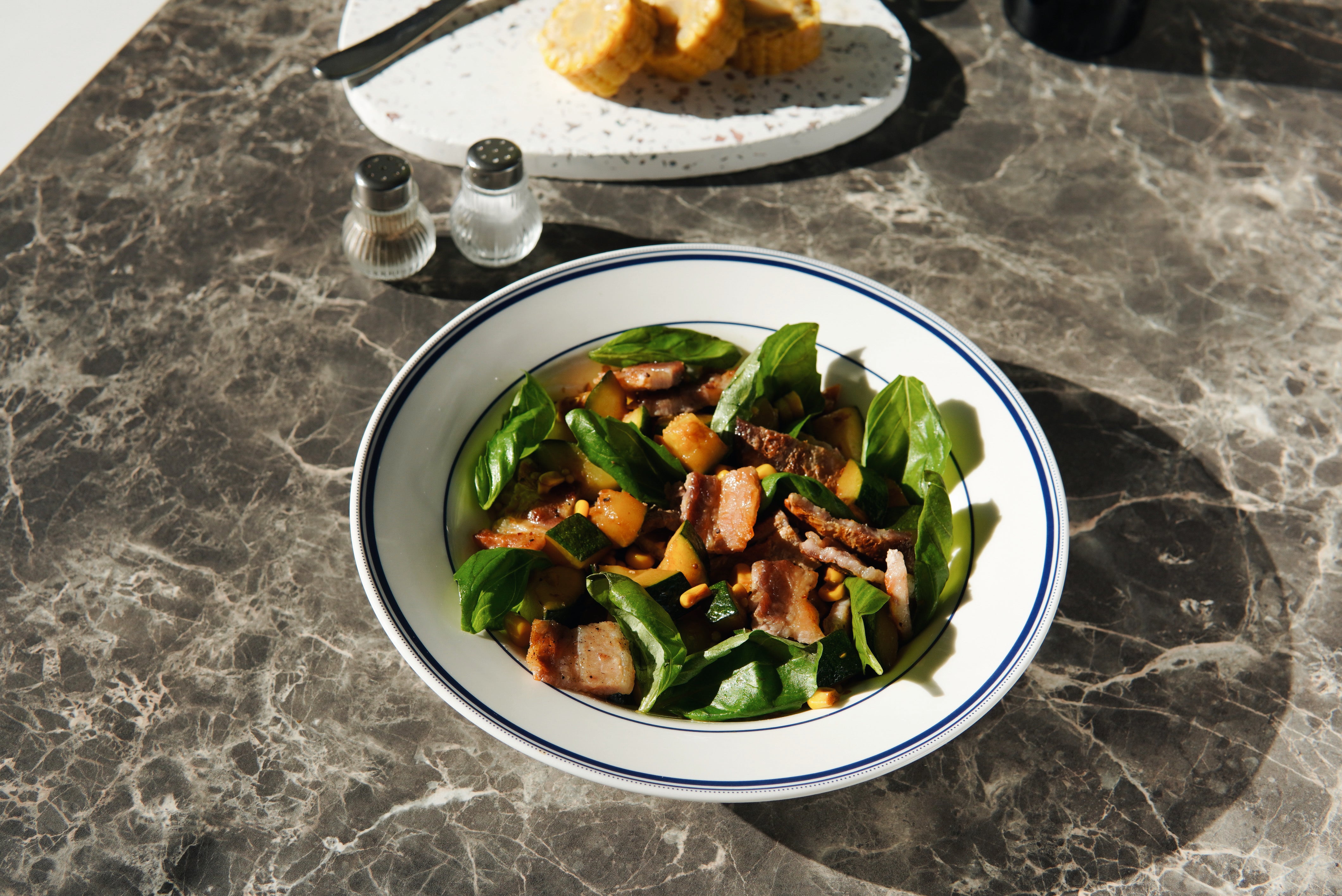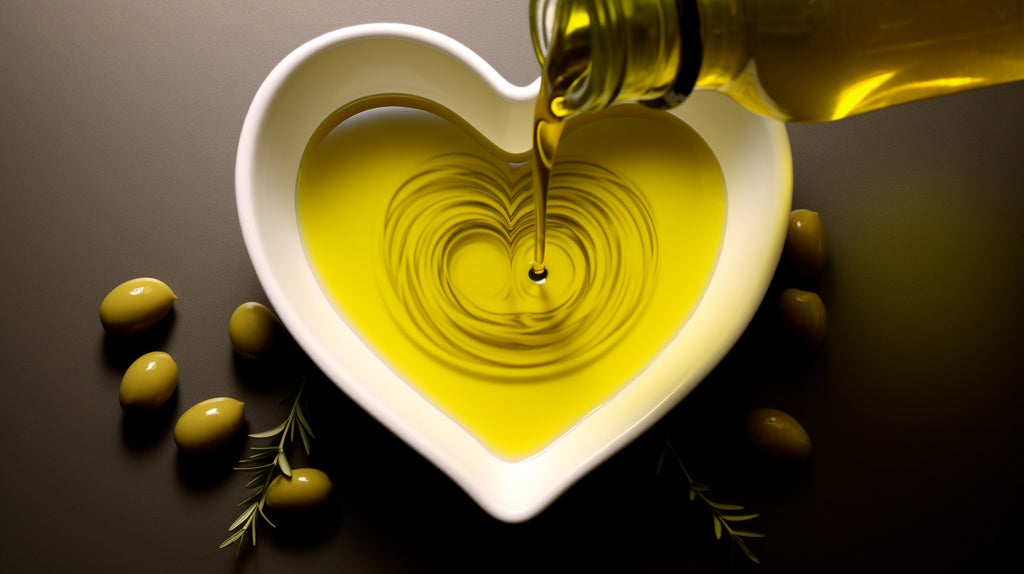A fog of confusion often surrounds the topic of cooking oils and their impact on cholesterol. Among the myriad of oils, olive oil holds a unique place, prompting us to delve into its relationship with cholesterol. To comprehend this, we need to grasp the basics of cholesterol types - LDL and HDL. LDL, known as 'bad' cholesterol, contributes to artery-clogging plaque, increasing heart disease risk. On the other hand, HDL or 'good' cholesterol plays a significant role in reducing LDL levels. Understanding these types is crucial in realizing how olive oil can influence our cholesterol levels and ultimately, our health.
Understanding Cholesterol
Venturing into the realm of cholesterol, we meet two characters: LDL and HDL cholesterol. These two play pivotal roles in our health but are often misunderstood.
Let's first get acquainted with LDL cholesterol, often branded as the 'bad' guy. While it's true that we need some LDL cholesterol to help build cells, too much becomes problematic. Excess LDL cholesterol can stick to the walls of our arteries, forming a plaque-like substance which restricts blood flow. This increases the risk of heart disease and strokes - definitely not something we want.
Now, let's turn our attention to HDL cholesterol - the 'good' kind. Rather than causing trouble, HDL cholesterol is on a mission to protect us from its LDL counterpart. It acts like a scavenger, hunting for LDL cholesterol in the bloodstream and transporting it back to the liver where it can be broken down and removed from the body.
In essence, maintaining a balance between these two types of cholesterol is key for our health. The lower your LDL levels and the higher your HDL levels, the lesser your risk of developing heart disease. But how does olive oil fit into this picture? Let's dive deeper in the next section.

The Link Between Olive Oil and Cholesterol
Olive oil - a product of the humble olive tree, carries within its golden liquid a wealth of health benefits. Chief among them is its unique composition that's abundant in polyunsaturated and monounsaturated fats. Unlike the villains of our dietary tale - saturated and trans fats, these are the heroes who come to our rescue.
The plot thickens with polyunsaturated fats. They're essential fats, meaning our bodies can't produce them and rely on our diet for supply. These fats play a critical role in cell function and maintaining overall health. But where do they tie in with cholesterol? Studies have shown that these fats can assist in lowering levels of LDL cholesterol, the bad actor contributing to heart diseases.
Enter monounsaturated fats - another key player in the olive oil narrative. These too have been associated with improved heart health by boosting levels of HDL cholesterol, the good kind that helps remove LDL cholesterol from your bloodstream.
But let's not neglect another powerful component found in olive oil - antioxidants. These naturally occurring compounds help protect your body from oxidative stress, which contributes to aging and disease. As if that wasn't enough, certain antioxidants present in olive oil have been linked to helping prevent diseases related to cholesterol and heart health.
In this grand drama of healthful living, olive oil certainly takes center stage!
Impact of Olive Oil on Cholesterol Levels
Let's delve into the exciting realm of olive oil as a natural cholesterol treatment. Yes, you heard that right. This golden elixir can be an effective tool in your arsenal against high cholesterol.
Olive oil, with its rich composition of monounsaturated fats and polyunsaturated fats, plays a significant role in maintaining the balance between LDL and HDL cholesterol. These healthy fats have the potential to lower the bad cholesterol (LDL), and simultaneously increase the good cholesterol (HDL). This unique feature makes olive oil stand tall in the world of healthy cooking oils.
But how does this translate into practical life? How can we harness these benefits? The answer is simple. Incorporate olive oil into your daily diet. Replace those unhealthy fats lurking in your kitchen shelves with olive oil. Not only will this help in cholesterol treatment, it will also add a delightful flavor to your meals.
Research indicates that consuming around two tablespoons of high-quality extra-virgin olive oil daily can have a positive impact on cholesterol levels. So, drizzle it over your salads, use it for sautéing vegetables or dip your bread in it.
Pairing olive oil with other cholesterol-lowering foods can work wonders for your health. Foods rich in soluble fiber like oats, fruits, vegetables, and legumes are excellent choices. They absorb LDL cholesterol from your bloodstream, while olive oil ensures that HDL levels are up.
A heart-healthy diet doesn't need to be bland or boring. With olive oil at your disposal, you can savor delicious meals while tending to your heart health.

Other Heart-Healthy Components of Olive Oil
The golden elixir that is olive oil holds more treasures than just its cholesterol-lowering prowess. Heart health, a matter of utmost importance, finds an ally in the Mediterranean diet, where olive oil takes center stage. This diet, resplendent with fruits, vegetables, whole grains, and lean proteins, is a ticker's delight. A consistent relationship exists between the Mediterranean diet and a reduced risk of cardiovascular diseases, and olive oil plays a crucial role in this.
Diving into the heart of olive oil, two components stand out — monounsaturated fatty acids and phenols. Monounsaturated fats are often dubbed the 'good fats.' Why so? They reduce harmful LDL cholesterol levels while boosting HDL cholesterol, contributing to a healthier heart.
Now meet the phenols - antioxidants with remarkable anti-inflammatory properties. They wage war against oxidative stress, a villain in many chronic diseases such as heart disease. A regular intake of these phenolic compounds is akin to arming your body with an arsenal against heart ailments.
Olive oil then is not just about cholesterol management; it's a holistic approach to heart health.
Choosing and Using Olive Oil for Optimal Cholesterol Benefits
When it comes to choosing the right olive oil for cholesterol, one word should be etched in your mind – extra virgin. This is the first pressing of the olives, retaining the highest level of heart-healthy compounds, making extra virgin olive oil a top pick for maximum health rewards.
Beware of labels such as 'light' or 'pure', they often refer to the color and flavor, not the quality. These oils have usually undergone more processing, stripping away many of the beneficial compounds. Seek out oils in dark glass bottles or tins, which protect against damaging light.
Now, you've got your extra virgin olive oil, but how do you weave it into your meals? It's simpler than you might think!
- Start by swapping it in for butter or margarine in cooking.
- Drizzle it over salads or roasted vegetables.
- Add a splash to soups or stews just before serving.
Remember moderation is key. While olive oil for cholesterol management is a smart choice, it is still high in calories. A little can go a long way in providing the benefits of olive oil for cholesterol reduction and overall heart health.

Conclusion
Olive oil, a liquid gold in the realm of healthful cuisine, is more than just a delightful addition to your meals. It's a powerhouse packed with monounsaturated fats and antioxidants, working tirelessly to lower harmful LDL cholesterol levels. By simply substituting less healthy fats with olive oil in your diet, you bid adieu to the unwelcome guest that is high cholesterol.
Now, isn't it time you gave your heart the care it deserves? Say yes to Selo Croatian olive oil — a quality choice for optimal cholesterol benefits. Its rich taste and high nutritional profile can be a cornerstone in your journey towards better health.
Remember, it's not just about adding years to your life but also life to your years. Order Selo Croatian olive oil today and embark on this journey of wellness!

